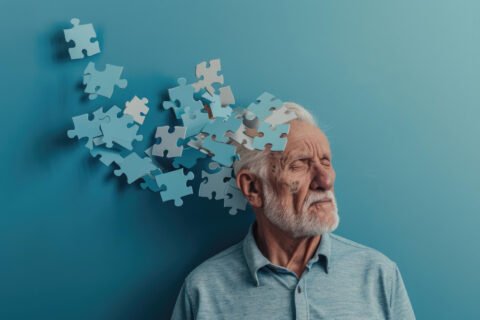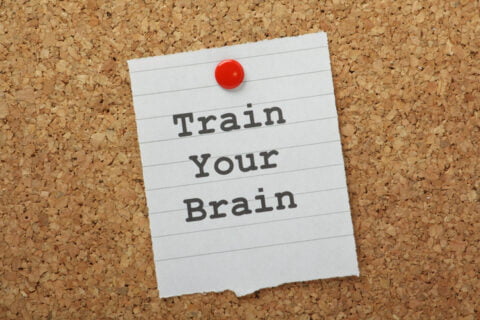Understanding dementia can be a daunting journey for both patients and caregivers. Knowing what to expect at each stage can provide comfort and preparedness. This article will guide you through the progressive stages of dementia, highlighting key symptoms, care requirements, and considerations. We aim to equip you with valuable insights to navigate this challenging condition better.
What are the Progressive Stages of Dementia?
Dementia is generally classified into seven stages, each with distinct characteristics and symptoms:
- Stage 1: No Cognitive Decline
- Normal functioning
- No memory loss
- No apparent symptoms
- Stage 2: Very Mild Cognitive Decline
- Minor memory lapses
- No noticeable symptoms to friends or family
- Stage 3: Mild Cognitive Decline
- Noticeable memory and cognitive issues
- Difficulty with complex tasks
- Loved ones start to observe changes
- Stage 4: Moderate Cognitive Decline (Mild Dementia)
- Clear-cut deficiencies in cognitive function
- Challenges with arithmetic, complex tasks, and remembering recent events
- Social withdrawal
- Stage 5: Moderately Severe Cognitive Decline (Moderate Dementia)
- Significant memory gaps
- Difficulty with daily activities and personal details
- Assistance required for daily functions
- Stage 6: Severe Cognitive Decline (Moderately Severe Dementia)
- Extensive memory loss
- Personality changes
- Need for substantial help with daily activities
- Stage 7: Very Severe Cognitive Decline (Severe Dementia)
- Loss of ability to respond to the environment
- Loss of verbal communication
- Full-time care needed
What Does Dementia Look Like as It Progresses?
As dementia progresses, symptoms become more severe and impact daily living. Initially, mild forgetfulness and minor cognitive difficulties are common. Over time, memory loss worsens, and individuals struggle with daily tasks, personal care, and communication. Eventually, in the later stages, individuals may lose the ability to recognise loved ones, speak, or move independently.
How Can You Tell What Stage of Dementia a Person Is In?
Determining the stage of dementia involves evaluating various indicators:
- Medical History: Reviewing past and current health conditions
- Cognitive Tests: Assessing memory, attention, and problem-solving abilities
- Daily Functioning: Observing difficulties in performing everyday tasks
- Behavioural Changes: Noting any significant personality or mood changes
What are the Signs Dementia is Getting Worse?
Several signs indicate dementia is progressing:
- Increased forgetfulness
- Difficulty with language and communication
- Problems with coordination and motor functions
- Changes in mood, behaviour, or personality
- Loss of ability to perform daily tasks
What Speeds Up Dementia Decline?
Certain factors can accelerate dementia progression:
- Poor overall health
- Lack of mental and physical activity
- Social isolation
- Infections or other medical conditions
- High levels of stress or depression
At What Stage Do Dementia Patients Forget Family Members?
Dementia patients often begin to forget family members in stage 6, known as Severe Cognitive Decline. At this stage, memory loss is so significant that recognising even close family members becomes difficult. This can be incredibly distressing for the individual and their loved ones, as the emotional connections and familiar faces that once brought comfort become confusing and unrecognisable.
At What Stage of Dementia Should You Not Live Alone?
Individuals in stage 5, or Moderately Severe Cognitive Decline, should not live alone. At this point, memory gaps and trouble with daily activities make it unsafe for them to live independently. The risk of accidents increases significantly, such as leaving the stove on or wandering off, and having a caregiver or moving to a supervised living environment becomes essential for safety.
At What Stage Should Someone with Dementia Go into Care?
Professional care is usually needed starting from stage 5. Assistance with everyday activities becomes crucial, and the safety and well-being of the person are better ensured in a care facility. In this stage, the individual may require help with basic tasks like dressing, bathing, and managing medications, making it difficult for family members to provide adequate care at home.
At What Point Should Dementia Patients Go into Care?
Dementia patients should consider moving into care facilities when:
They can’t perform daily activities on their own, such as eating or grooming
Safety is a concern due to frequent falls or wandering
Caregiver stress and burnout occur, affecting their ability to provide quality care
Medical needs require professional supervision, like managing complex health conditions or medications
What Does Stage 7 Dementia Look Like?
Stage 7 dementia, or Very Severe Cognitive Decline, involves:
Severe cognitive decline to the point where the individual may not respond to their environment
Inability to communicate verbally, often losing the ability to speak or understand language
Loss of motor skills and physical functions, leading to difficulties in walking, sitting, and swallowing
Complete dependence on caregivers for all daily activities, including feeding and personal hygiene
Risk of severe complications, such as infections, bedsores, and malnutrition, due to immobility and other health issues
What Stage of Dementia is Incontinence?
Incontinence typically occurs during stage 6 (Severe Cognitive Decline). At this stage, individuals may lose control over bladder and bowel functions and need help with personal hygiene. This loss of control can be embarrassing and uncomfortable, requiring compassionate care and appropriate management to maintain dignity and comfort.
When is Dementia Considered Terminal?
Dementia is considered terminal in stage 7 (Very Severe Cognitive Decline). At this stage, individuals are entirely dependent on caregivers and may face significant health complications leading to end-of-life. Hospice care may be appropriate to manage symptoms and provide comfort, focusing on the quality of life in the final stages.
At What Stage of Dementia Do You Need 24-Hour Care?
24-hour care becomes necessary during stage 6 (Severe Cognitive Decline). The person needs constant supervision and assistance with daily activities, personal care, and safety. Continuous care helps manage the frequent needs and potential emergencies that can arise, ensuring the individual is well cared for around the clock.
What Stage of Dementia is Wanting to Go Home?
The behaviour of wanting to go home is often seen in stages 5 and 6. This desire arises from confusion, anxiety, and a longing for familiarity and comfort. Individuals may repeatedly express a wish to return to a place they remember as safe, even if they are already at home, reflecting their need for security and reassurance.
When is the Right Time to Put a Dementia Patient in a Home?
The right time to consider a care home is when:
Safety and health are at risk, such as frequent falls or unattended wandering
Caregiver stress is overwhelming, leading to burnout and inability to provide proper care
Professional medical care is needed for managing health conditions and medications
Daily living activities become unmanageable for the individual and their caregivers, requiring specialised support and resources available in a care home
What Goes on in the Mind of a Person with Dementia?
A person with dementia may experience:
Confusion and disorientation, often feeling lost even in familiar places
Memory lapses and forgetfulness, struggling to recall recent events or recognise people
Emotional fluctuations, with rapid changes in mood and behaviour
Anxiety and fear stemming from their inability to understand their surroundings and situations
Difficulty processing information, making it hard to follow conversations or complete simple tasks
Does a Person with Dementia Know They Are Confused?
Individuals with dementia might have moments of awareness about their confusion, especially in the early stages. They may express frustration or embarrassment about their memory lapses and cognitive difficulties. However, as the disease progresses, this awareness often fades, and they may no longer realise their condition, living more in the moment without understanding their cognitive decline.
What is the Number One Trigger for Dementia Behavior?
The primary trigger for behaviour changes in dementia patients is often confusion. This can lead to frustration, agitation, and anxiety, causing various behavioural issues. When individuals cannot make sense of their environment or remember important information, they may react with fear, aggression, or repetitive actions to cope with their inner turmoil.
Do Dementia Patients Know They Have Dementia?
In the early stages, some individuals may be aware of their condition and understand they have dementia. They might notice their cognitive decline and seek medical advice. However, as dementia progresses, self-awareness typically decreases, and they may no longer understand they have dementia, living more in the moment and often unaware of their limitations.
How Long Does it Take to Go from Stage 5 to Stage 7 Dementia?
The progression from stage 5 to stage 7 can vary widely. On average, it may take several years, but the exact timeline depends on individual health, the quality of care, and environmental factors. Some people may progress more quickly due to underlying health conditions or lack of adequate support, while others may maintain a slower decline with proper care and a stimulating environment.
Frequently Asked Questions
What is the main difference between dementia and Alzheimer’s disease?
Dementia is an umbrella term for conditions that impair memory, thinking, and behaviour. Alzheimer’s is the most common type of dementia.
Early signs include memory loss, trouble with familiar tasks, confusion, difficulty understanding visuals, and speech problems.
Alzheimer’s is diagnosed through medical history, cognitive tests, brain scans, and looking for specific brain changes. Other dementias have different diagnostic methods.
Yes, it’s possible to have mixed dementia, combining Alzheimer’s with another type.
While there’s no cure, treatments manage symptoms. Medications, lifestyle changes, and supportive therapies can help.
Early onset Alzheimer’s occurs before age 65 and progresses faster. Symptoms are similar to late-onset but more severe. An understanding of different stages of dementia and Alzheimer’s can help recognize symptoms early.
Yes, neuropsychological tests, brain imaging, blood tests, and spinal fluid analysis can help.
Exercise, a healthy diet, mental stimulation, social engagement, and managing heart health can help. It’s also important to know about different stages of dementia
Lewy body dementia has more visual hallucinations, fluctuating thinking, and movement problems (like Parkinson’s). Alzheimer’s focuses more on memory loss, confusion, and language difficulties.
A
You will also like Best vitamins for brain health




